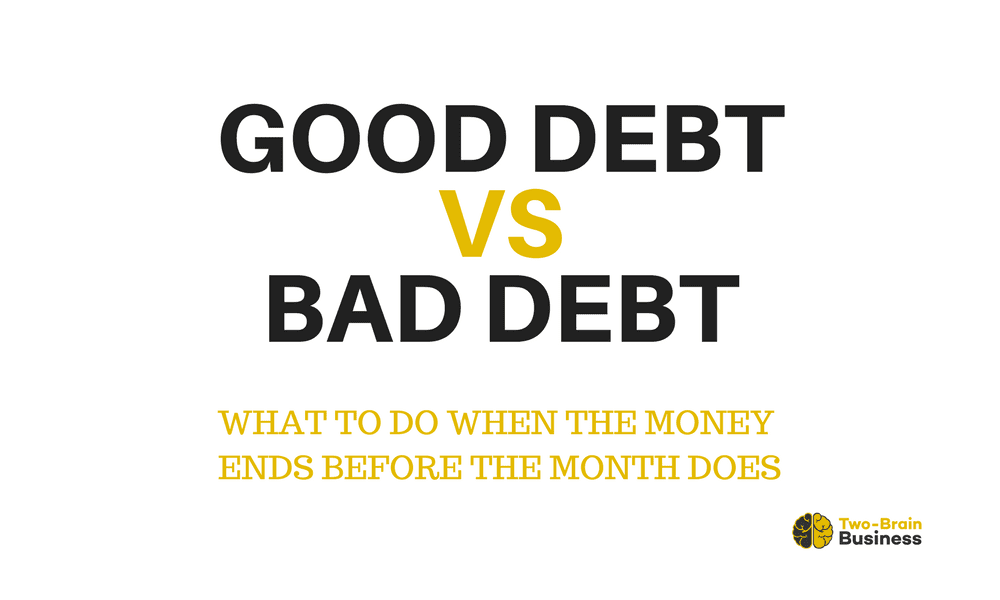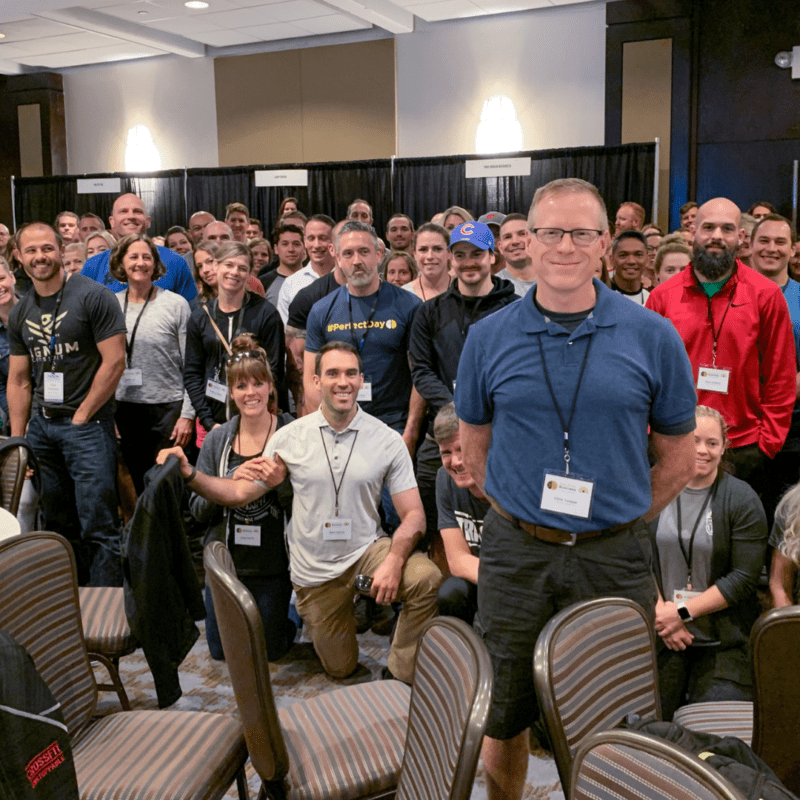In Two-Brain Business 2.0, I wrote:
“Good debt creates an asset. Bad debt creates a liability.”
I was talking about investment. But now I want to talk about the myth that you should avoid all debt, or make paying off your loans your top priority.
This myth is on heavy rotation among affiliate owners. I don’t recall Greg ever saying “Don’t go into debt” (but he might have)–his advice was to smart small, outgrow your space, and then get a bit bigger. This means minimizing what’s owed to other people, and it makes perfect sense.
I come from farmers who pay for everything in cash. They didn’t have debt; they thought borrowing money was an unnecessary risk. Many farmers would agree.
And so, when I found myself in a cash flow crisis in 2010, I spent a very tough few months. I went without sleep; I fought with my wife; I went to the gym when I didn’t have to because I didn’t want to miss any opportunity to make money. I cut staff costs. I even cut our own pay.
Then I got hit with the perfect financial storm: a tax bill I didn’t expect. A large refund to a client that I shouldn’t have given (but didn’t have any sort of policy to the alternative). And a huge power bill finally tipped the scales: I couldn’t afford to skip another paycheck, but I couldn’t pay the rent either.
I called the bank and asked to refinance my loan. I was ashamed. I was embarrassed. I felt like a failure.
She said, “Oh, you mean a cash flow loan? Yeah, everyone does that.”
Everyone does that.
Except the voice in my head.
I refinanced the balance on a couple of loans. I had two years left on each, but at the rate I was going, I wouldn’t have survived another two years. I spread the payments out for another five, and–gasp!–borrowed money to cover payroll.
Guess what happened?
My monthly payments went from crippling to easily manageable. Sure, the bank was going to make more money on me if I took ten years to pay them off, but when you’re looking at an empty fridge, paying $300 more in interest over ten years seems like a pretty easy trade.
More importantly, I suddenly had a tiny margin: my business was profitable. The second month, I finished with $120 more than the month before. This meant I owned a profitable business. We were far from out of the woods, and still very fragile, but I banked the HELL out of that $120.
That gave me some confidence. I could sell a 20-pack of PT, feeling confident we’d still be around to service it. I could tell people what they really needed to buy, because I wasn’t thinking of every sale as “something is better than nothing.”
Debt is a huge problem in our economy. People turn to dramatic, spartan lifestyles to get on top of their personal debt. I’m a fan, and I still believe in a minimalist approach to your life and your business. But EVERY business needs help to get through stressful times, and that’s what the bank is there for.
Three years after I refinanced my loan, it was gone. A tiny margin of profit gave me the traction I needed to take an evening off, get some rest, refresh my brain, and get my mojo back. Viewed as part of my long-term strategy, refinancing my loan was critical to my success. Paying off debt isn’t a race. It’s a great idea IF everything else is going right and there’s money left over after everyone is fed.
Taking a $100,000 loan to open a CrossFit gym is foolish. But avoiding loans at all costs; choking out your family’s income; or skimping on soap in your showers to pay back a loan? Equally foolish, and sometimes fatal. Both are signs of an entrepreneur without a plan, and without a mentor.

